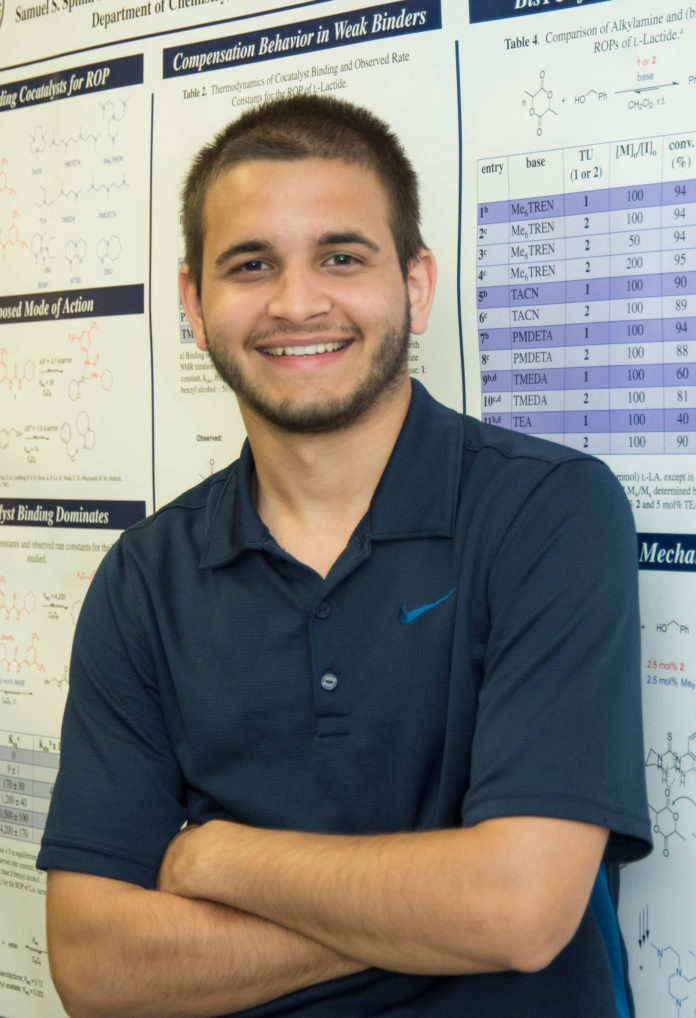
SOUTH KINGSTOWN – Sam Spink’s hard work in the chemistry lab has paid off.
The South Kingstown resident, a junior at University of Rhode Island, has won a $7,500 Barry M. Goldwater Scholarship, the most prestigious undergraduate national scholarship for students in the fields of mathematics, the natural sciences and engineering.
For years, Spink, 21, has spent long hours in a chemistry lab at URI studying chemical compounds called polymers.
Spink, who is studying biomedical engineering and Spanish, has excelled academically, making the Dean’s List all three years and receiving the Walter E. Schmid Engineering Scholarship. Spink has worked in the lab of Matthew Kiesewetter, an assistant professor in the URI chemistry department, since the summer following his freshman year, according to URI.
He investigates ring-opening polymerization, a technique that makes polymers ¬– chemical compounds made up of strings of bonded molecules – using organic catalysts to speed up the process.
One type of polymer is polyester – the material used to make water bottles, containers and clothing. But polymers are also used in biomedical research, including drug delivery and tissue regeneration and repair, as well as other kinds of treatment and therapy.
Spink’s Goldwater essay, “Organocatalytic ring-opening polymerization and its impact on biomedical studies,” examines the uses of polymers and explores his development of a catalyst that enhances polymer production speed, in some cases 100 times faster than with other catalysts. He also has an academic paper to his credit. He is the first author in a paper published last August in the highly regarded chemistry journal, “Macromolecules.’’
“I love trying to understand concepts that don’t necessarily make sense right away,’’ he said. “It’s satisfying when you finally grasp something. It’s exciting to understand how the world works around you. It’s not a jump up shouting kind of exciting. It’s, like, ‘Wow, I get that.’ ’’
After graduating next spring, Spink expects to pursue a doctorate in biomedical engineering and conduct research involving polymer chemistry and biomedical engineering to tackle medical challenges, such as the use of polymer-based gels in tissue repair.
Students must be nominated for the Goldwater Scholarship by their academic institution; for the academic year, 252 Goldwater scholarships, including Spink’s, were awarded to sophomores and juniors nationwide. They were selected on the basis of academic merit from a field of 1,150 mathematics, science and engineering students who were nominated by 415 colleges and universities.












